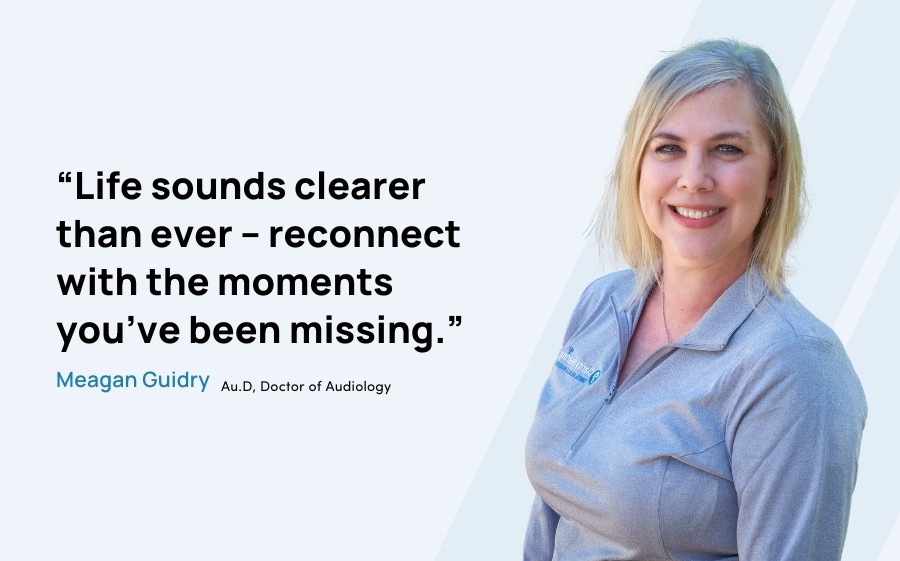Why Can I Hear, But Not Understand?
Central Auditory Processing Disorder (CAPD) is when there’s a disconnect between your ears and your brain, leading to hearing words spoken to you, but not quite understanding them right.
For example, someone might ask you, “How are the chair and couch alike?” and your brain will accidentally scramble the sounds so that you hear, “How a cow and hair are like?”
Streamlined CAPD treatment isn’t out of reach for those looking for straightforward hearing healthcare. Our unbundled plans come with all the bells and whistles you need, and none of the ones you don’t, so that you don’t have to worry about excess features or costs.
If you or a loved one has been struggling with not understanding what you’re hearing, we encourage you to seek out a CAPD assessment to find out how you can get back to hearing and understanding.


What Are The Signs & Symptoms?
CAPD affects everyone slightly differently, but the most common signs include:
CAPD affects everyone slightly differently, but the most common signs include:
Taking longer to respond in oral communication situations
Frequent requests for repetitions
Inconsistent or inappropriate responding
Difficulty following complex auditory directions or commands
Difficulty with musical skills, including learning songs or nursery rhymes
Misunderstanding messages or interpreting sarcasm or jokes
Difficulty paying attention
Poor performance on speech and language tests
Associated reading, spelling, and learning problems
If you’re dealing with any of the above symptoms, please feel free to contact us for more information about CAPD or to book an assessment.
What Happens During My Auditory Processing Test?
Review Your Case History
Auditory/behavioral complaints
Psychological factors (e.g., attention, memory, motivation)
Cultural and linguistic background (e.g., native language)
Educational achievement
Family/genetic history
Health status (medical history and medications)
Hearing status (e.g., peripheral auditory system)
Prior and current related therapies
Risk factors and comorbidities (e.g., learning disabilities, epilepsy)
Speech, language, and literacy concerns
Evaluation of Peripheral Auditory System
Evaluation of Central Auditory System
Auditory discrimination tests: Check the ability to tell similar sounds apart.
Auditory temporal tests: Assess how well you process sounds over time.
Dichotic speech tests: Measure the ability to hear different sounds in each ear at the same time.
Monaural low-redundancy tests: Test recognition of unclear speech, like speech in noise or fast speech.
Binaural interaction tests: Evaluate how well you combine sound inputs from both ears.
FAQs
FAQs About CAPD
Some of our most frequently asked questions regarding Central Auditory Processing Disorder (CAPD)
What is the treatment for CAPD?
Your CAPD treatment is performed by speech-language pathologists that use a multi-step approach for treating CAPD. This treatment includes Auditory Training, where they use listening exercises to strengthen the brain’s ability to process; Learning Compensating strategies to help your brain compensate for weaker areas of comprehension, where the environment’s background noise is reduced; and FM systems in schools, as well as other methods.
At what age can my child be tested for CAPD?
Which of your locations offers these services?
Which audiologist will I see at my appointment?














